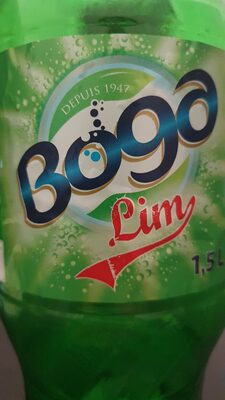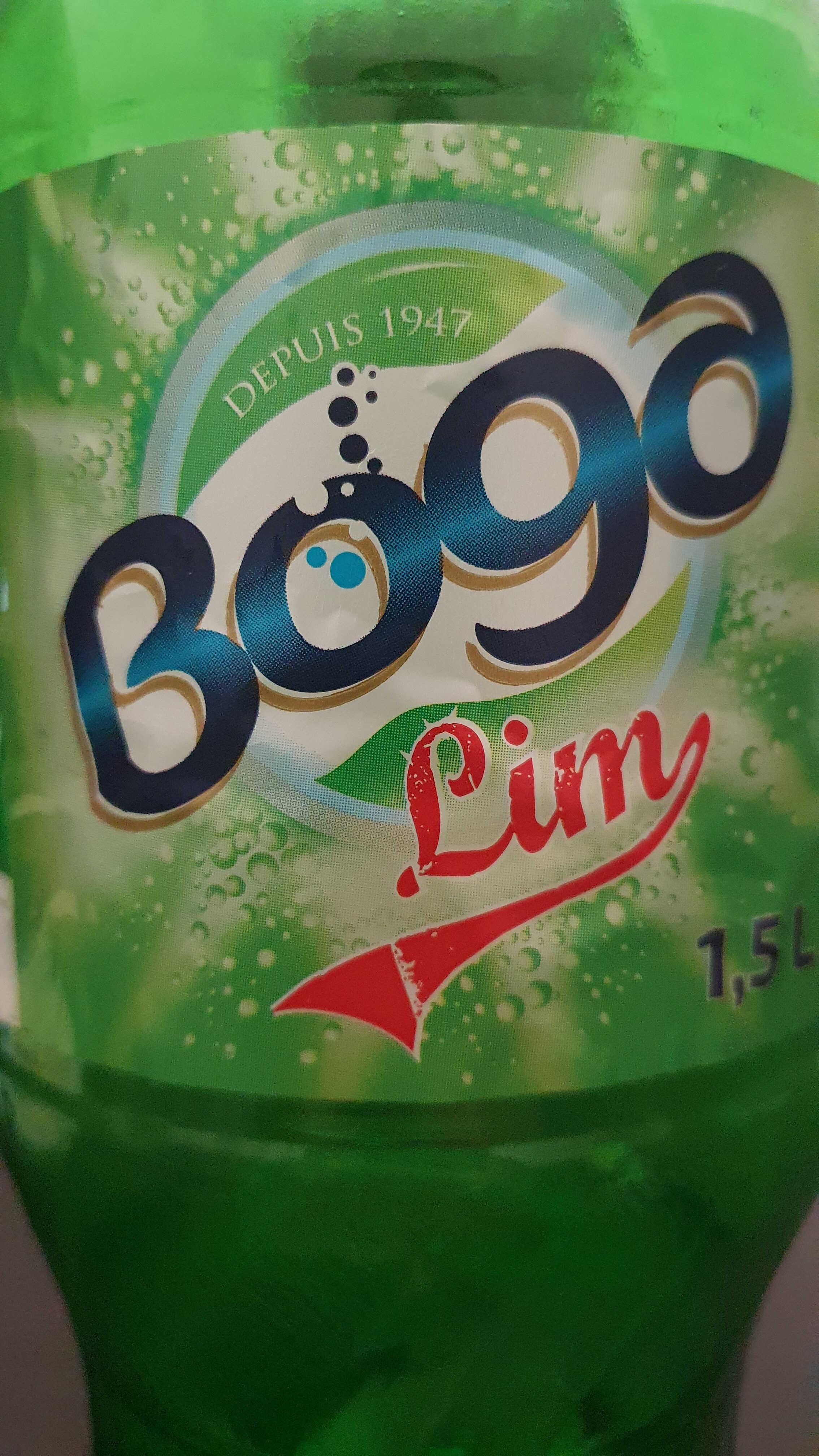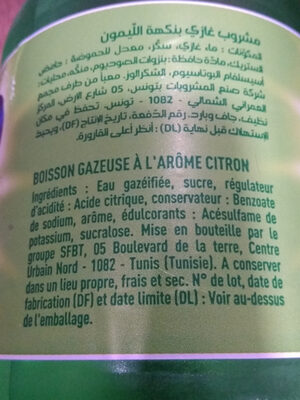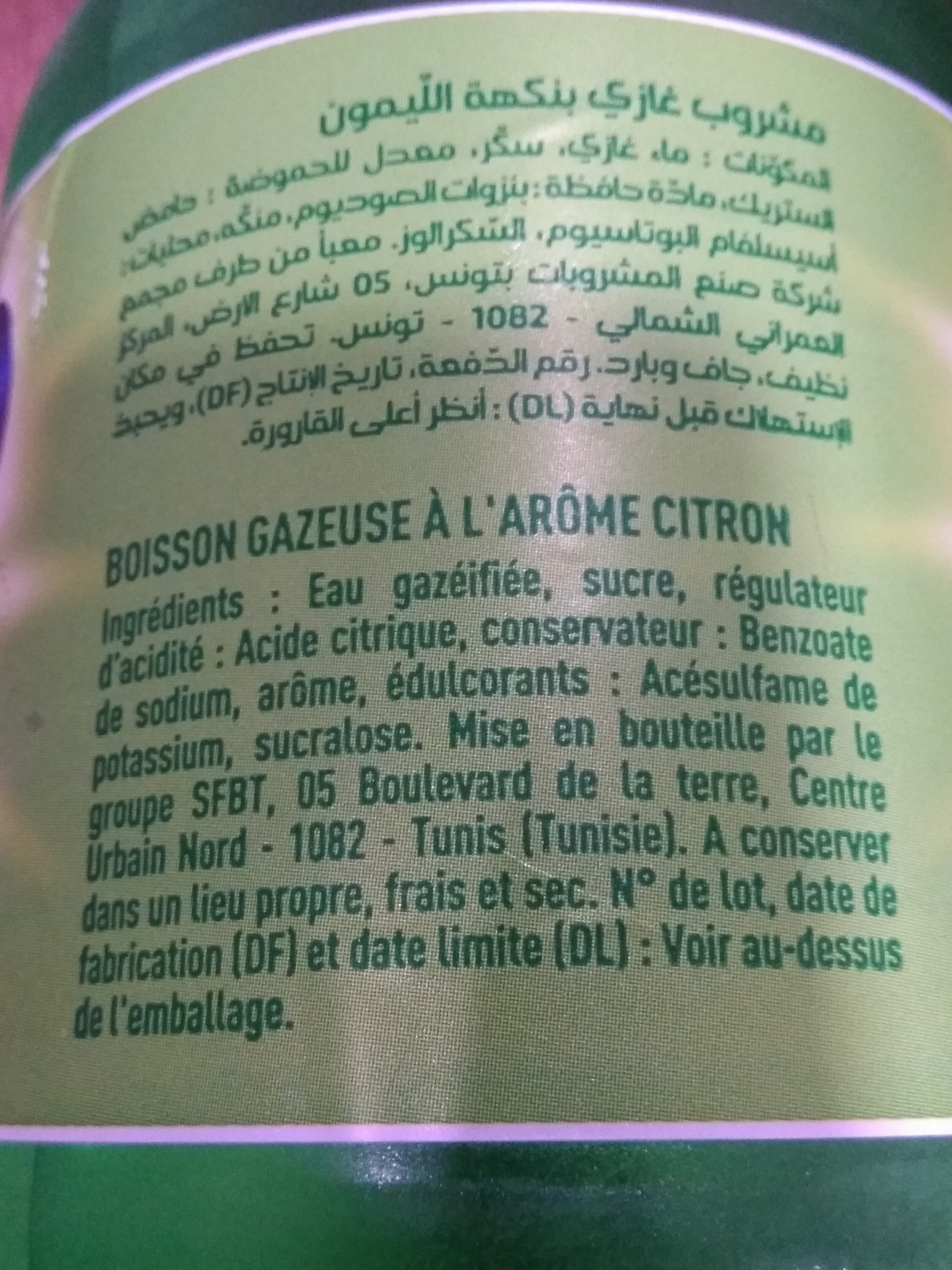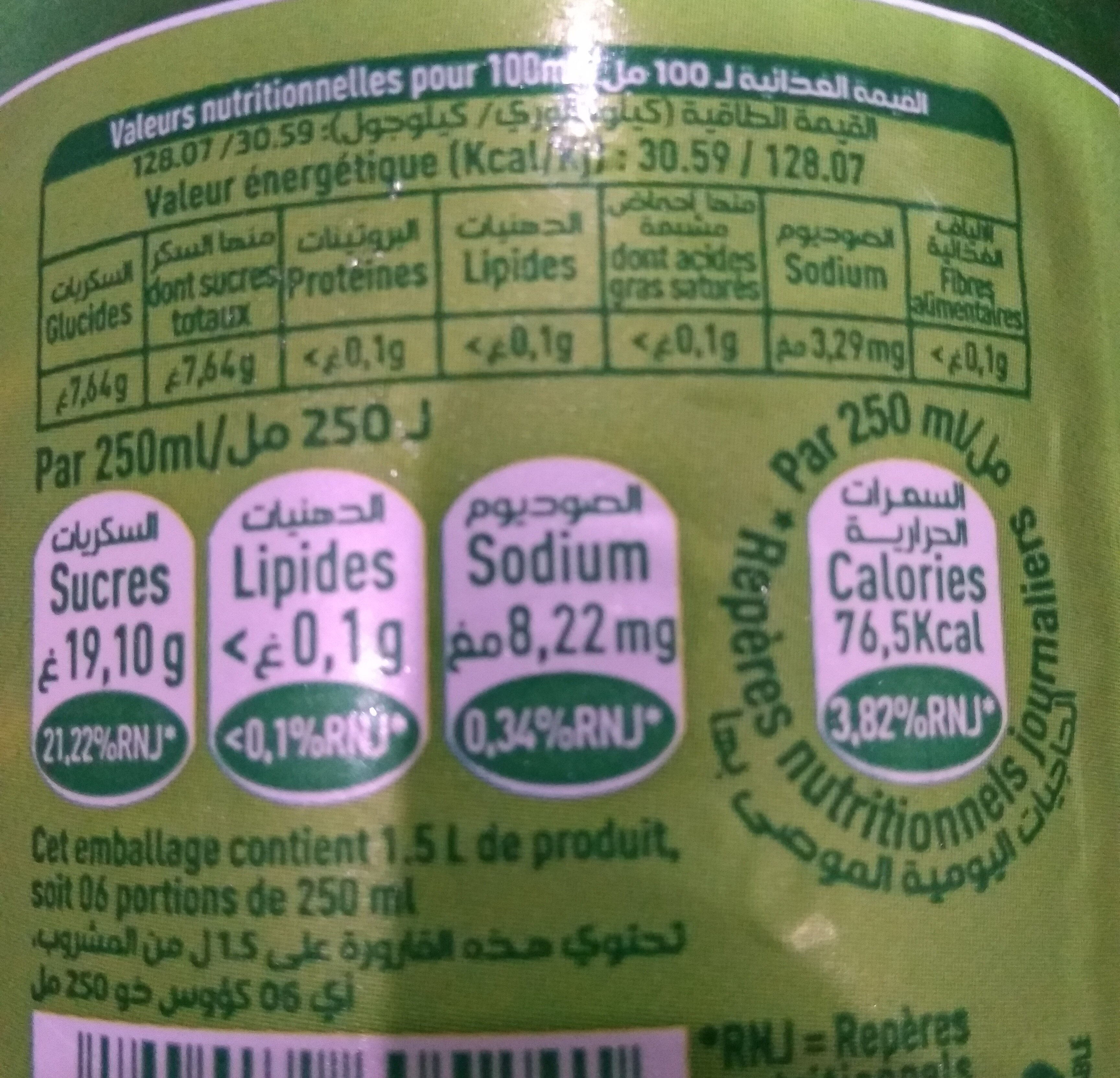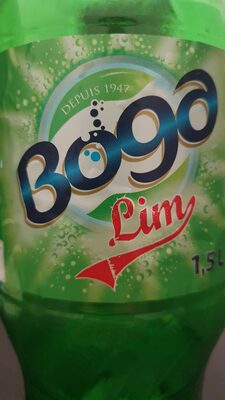Boga Lim - 1,5 L
This product page is not complete. You can help to complete it by editing it and adding more data from the photos we have, or by taking more photos using the app for Android or iPhone/iPad. Thank you!
×
Barcode: 6194019605241 (EAN / EAN-13)
Quantity: 1,5 L
Packaging: fr:Bouteille PET, fr:bouchon PET
Categories: Beverages, Carbonated drinks, Artificially sweetened beverages, Sodas, Diet beverages, Carbonated soft drinks without fruit juice, Carbonated soft drinks without fruit juice with reduced sugar, Carbonated soft drinks without fruit juice with sugar, Carbonated soft drinks without fruit juice with sugar and artificial sweeteners, Sweetened beverages
Labels, certifications, awards:
Green Dot, Tidy man, Triman

Manufacturing or processing places: Tunisie
Stores: Gortat, Magasins U
Matching with your preferences
Report a problem
Data sources
Product added on by sebleouf
Last edit of product page on by guezguez-majed.
Product page also edited by gmlaa, kiliweb, magasins-u, openfoodfacts-contributors, packbot, quechoisir, smoothie-app, yuka.VnZBZUg1VWZwdFFWdWZZM29BajQyODV2K2E2NFVrRHVEZG9wSVE9PQ, yuka.WmJ3U0lJWlpuK2RUcS9RTS9CanNwZXd2NjVLMVh6dXNCdFVmSVE9PQ, yuka.ZDZaYVBhY3d0TU1NdU1NdjNRUFIydDVxeUxpR0JXYnBKTU02SUE9PQ, yuka.ZHFFeUxMMER2cU1Nc2ZFQzlUaUwxdGRjNUlTVFcyaStldXdJSWc9PQ, yuka.sY2b0xO6T85zoF3NwEKvlkZDdOLEjzfhD0fQyHaU4tmLFcPkSthi3IGrGKs, yukafix.
